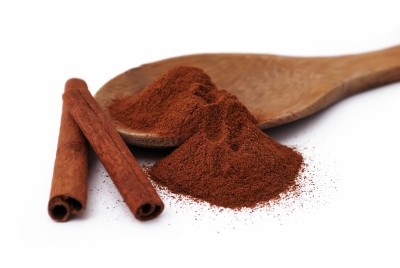Originating from wild trees native to South America, Southeast Asia and the Caribbean, a reddish-brown spice has warmed our hearts and homes and offered a delicious ingredient for quick breads and apple pies. Cinnamon has been used for several millennia. In addition to its culinary value, it was also used in embalming by the Egyptians. In earlier cultures, applications included treatment for diarrhea, upset stomach, menstrual cramps, arthritis, coughing, and sore throats. It can also be found in Scripture:
“Take the following fine spices: 500 shekels of liquid myrrh, half as much (that is, 250 shekels) of fragrant cinnamon, 250 shekels of fragrant calamus, 500 shekels of cassia – all according to the sanctuary shekel – and a hin of olive oil.” (Exodus 30:23-24 / NIV)
Two Types of Cinnamon
– Ceylon cinnamon (Cinnamomum verum or zeylanicum) – Also called “true” cinnamon. Most commonly used in the Western world.
– Cassia cinnamon (Cinnamomum aromaticum) – Also called Chinese cinnamon. Less expensive.
IMPORTANT NOTE: Cassia contains high levels of coumarin (not to be confused with coumadin). Ceylon has only traces or undetectable levels. Coumarin can cause liver toxicity in high doses.
Possible Health Benefits
Although studies are lacking to confirm all of these potential benefits, cinnamon may still provide positive effects:
1) Cancer-preventive effects – Aqueous cinnamon extract from the bark of cassia causes apoptosis (cell death) in human cervical cancer cells.
2) Diabetes – Improves glucose and lipid levels.
3) Lower Cholesterol – Another study showed reduced total cholesterol, LDL cholesterol, and triglycerides while increasing HDL-cholesterol in diabetic rats.
4) Fiber and Minerals – Cinnamon provides high amounts of fiber, calcium, and manganese.
5) Infections – Cinnamaldehyde, a chemical in Cassia cinnamon, can help fight against bacterial and fungal infections. Research was published in ACS Nano regarding the use of peppermint oil and cinnamaldehyde to treat persistent infections by eradicating the pathogen’s biofilm (a slimy protective film produced by bacteria which allows its survival against attempts to destroy it).
6) Alzheimer’s Disease – Cinnamaldehyde and epicatechin, another compound of cinnamon, help prevent the aggregation of a protein called tau. (Within the brain’s nerve cells, there are parallel tracks. These “tracks” are a means of transport for food molecules and key materials. Tau helps keep these tracks straight. When tau collapses into twisted “tangles,” a hallmark of Alzheimer’s Disease, these tracks fall apart and disintegrate. Nutrients can no longer move through the cells, and the cells die.)
7) Multiple Sclerosis – may provide cost-effective health benefits without side effects for MS patients.
RISKS and PRECAUTIONS
If you are sensitive to cinnamon or any or its properties, if you are pregnant or breast-feeding, if you have or are at risk for having liver damage, it is best to avoid it until you have checked with your healthcare provider. As always, it is best to seek their advice if you have any concerns about taking a supplement.
If you have used cinnamon for its medicinal qualities, what condition were you treating? Were your results positive?
 The Bottom Line, Ministries Christian News, Articles, & Poetry
The Bottom Line, Ministries Christian News, Articles, & Poetry 




